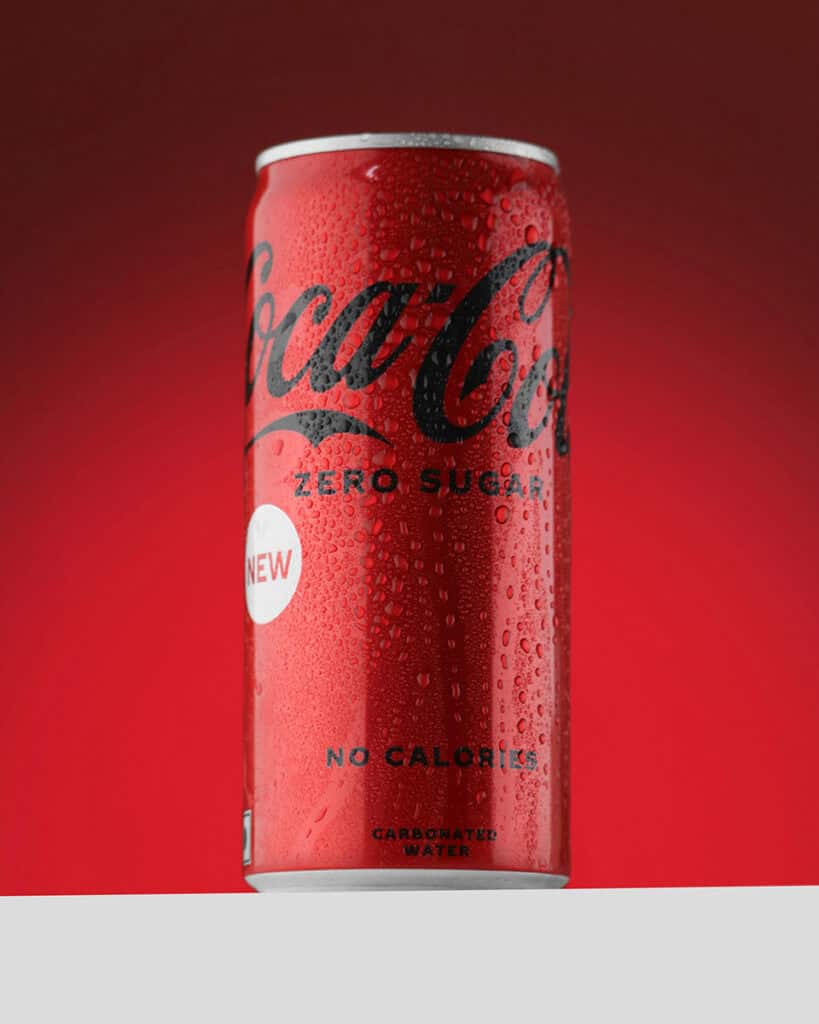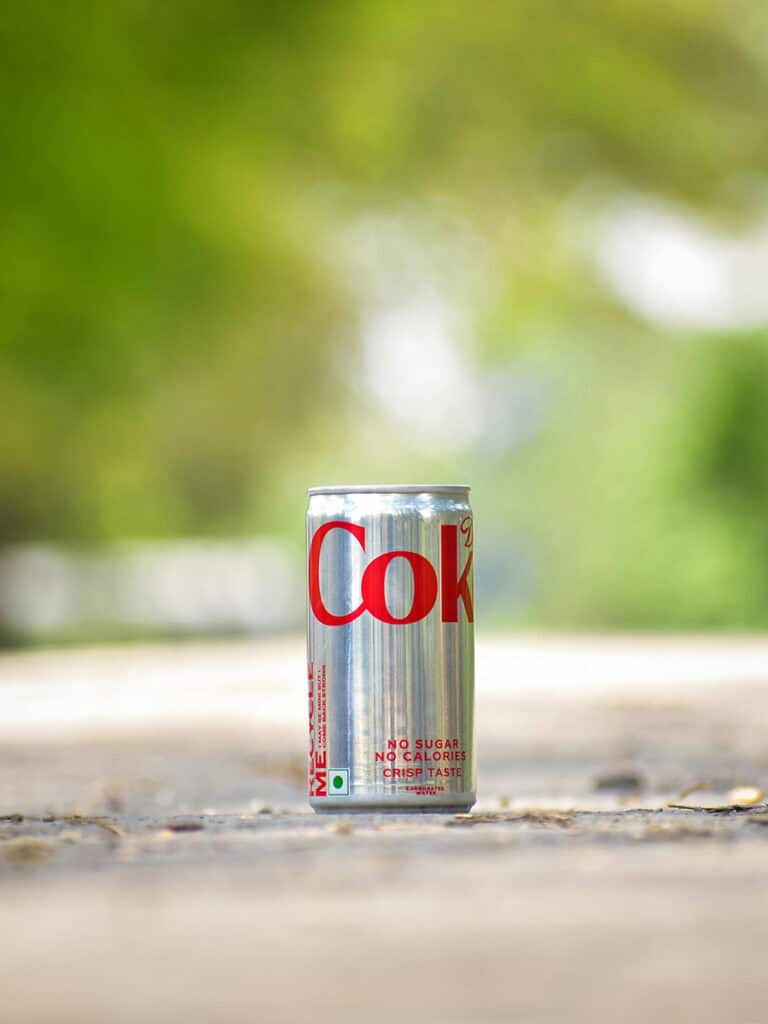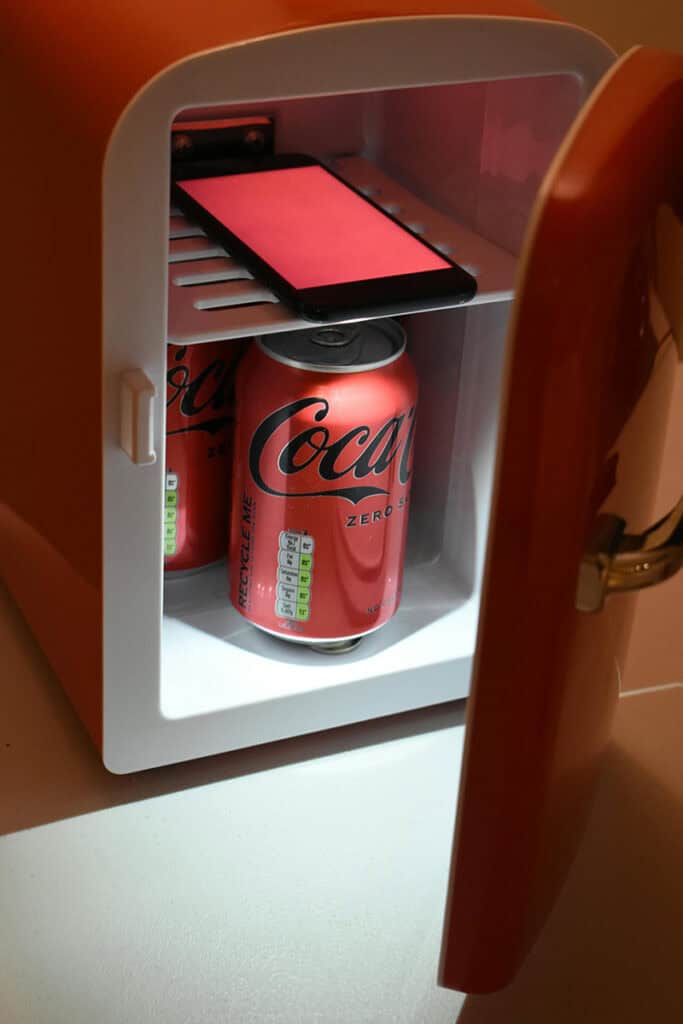Are you torn between Diet Coke and Coke Zero? You’re not alone! Many people struggle with choosing between these two popular beverages, each offering a sugar-free alternative to regular soda.
As your guide, We will help you navigate through their differences so you can make a well-informed decision.
In this article, we’ll break down 6 facts of Diet Coke and Coke Zero.
By the end, you’ll understand which drink best suits your lifestyle and how to enjoy them responsibly. Keep reading and take the first step toward making a healthier choice!
- 1. Which One is Healthier, Coke Zero or Diet Coke?
- 2. What Ingredients Are Different in Diet Coke and Coke Zero?
- 3. Is Diet Soda Really 0 Calories?
- 4. Flavor, Nutrition, and Downsides of Diet Coke and Coke Zero
- 5. Is Diet Coke or Coke Zero Good for Weight Loss?
- 6. Which One Should You Choose?
- What's the Difference Between Diet Coke and Coke Zero? A Recap

1. Which One is Healthier, Coke Zero or Diet Coke?
There isn’t much difference between Coke Zero and Diet Coke. Both drinks are low in calories and sugar-free. However, they contain artificial sweeteners, which may have different effects on health and wellness.
- Coke Zero uses aspartame and acesulfame potassium, giving it a taste closer to regular Coke.
- Diet Coke contains only aspartame, which gives it a lighter, crisp taste.
Both drinks do not cause weight gain, but excessive consumption may lead to health concerns. Artificial sweeteners can affect metabolism and gut health. Some studies suggest they may increase cravings for sweet foods.
See also What Are Healthy Snacks?
2. What Ingredients Are Different in Diet Coke and Coke Zero?

Although both drinks are sugar-free, they have different ingredients that affect taste and composition.
- Diet Coke:
- Carbonated water
- Aspartame (sweetener)
- Phosphoric acid
- Natural flavors
- Caffeine
- Coke Zero:
- Carbonated water
- Aspartame and acesulfame potassium (sweeteners)
- Phosphoric acid
- Natural flavors
- Caffeine
- Sodium citrate
The key difference is that Coke Zero has acesulfame potassium, which enhances sweetness and makes it taste more like regular Coke.
3. Is Diet Soda Really 0 Calories?

Diet sodas, including Diet Coke and Coke Zero, are labeled as having 0 calories, but they may contain very few calories.
- The FDA allows products with fewer than 5 calories per serving to be labeled as zero-calorie.
- Artificial sweeteners create a sweet taste without adding significant calories.
- They do not provide energy like sugar but can still trigger insulin responses in some people.
- Diet sodas do not directly cause weight gain, but they can affect metabolism.
- Some people may experience increased hunger after drinking diet sodas.
4. Flavor, Nutrition, and Downsides of Diet Coke and Coke Zero

Flavor
- Diet Coke has a lighter and more crisp taste.
- Coke Zero tastes more like regular Coca-Cola due to different sweeteners.
- People who prefer traditional Coca-Cola usually like Coke Zero more.
Nutrition
- Calories: Both are labeled as zero-calorie drinks.
- Sugar: Both contain no sugar.
- Caffeine: The caffeine content is almost the same in both.
- Sodium: Coke Zero has slightly more sodium than Diet Coke.
Downsides
- Artificial sweeteners may affect gut bacteria and metabolism.
- Some studies link diet soda consumption to an increased risk of diabetes and heart disease.
- They can cause bloating and digestive discomfort in some people.
- Drinking them in large amounts may lead to addiction to sweet flavors.
5. Is Diet Coke or Coke Zero Good for Weight Loss?

Diet Coke and Coke Zero are marketed as zero-sugar alternatives to normal Coke. Both contain non-nutritive sweeteners like Ace-K and phenylalanine, which provide sweetness without adding calories. This makes them a calorie-free choice for those aiming to manage body weight.
However, while these sugar-free drinks can help reduce overall caloric intake, they do not necessarily lead to weight loss. Some studies suggest that non-nutritive sweeteners might affect cravings and metabolism. Caffeine content in both drinks may provide a temporary energy boost.
If you want to avoid Coke altogether, diet lemonade or other wellness drinks may be a better option. While Diet Coke was launched in 1982, Coke Zero Sugar was developed later for a taste closer to Coca-Cola. Always consume within the acceptable daily intake limits.
6. Which One Should You Choose?
The choice depends on personal preference. If you like a taste closer to regular Coke, Coke Zero is better. If you enjoy a lighter, crisp flavor, Diet Coke is a good choice. Both have no sugar but should be consumed in moderation.
See also 14-Day No-Sugar Diet Food List
What’s the Difference Between Diet Coke and Coke Zero? A Recap
When choosing between Diet Coke and Coke Zero Sugar, it’s important to consider facts about their ingredients and impact on body weight. Both are zero sugar and calorie-free, making them alternatives to normal Coke. They contain non-nutritive sweeteners like Ace-K and phenylalanine, which provide sweetness without calories.
While these drinks can help people avoid excess sugar, their effects on metabolism are still debated. Caffeine content varies slightly, and taste preferences differ. Diet Coke was launched earlier, while Coke Zero was developed to taste more like Coca-Cola.
If you want other sugar-free options, consider diet Sprite or diet green tea, which also have acceptable daily intake limits. In the end, moderation is key, as drinking a lot daily may not be the healthiest choice.


